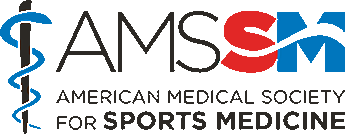 Background Stimulants are used in sports to enhance performance. These substances work on the central nervous system to increase alertness, concentration, metabolic rate, power, strength, and to decrease fatigue. They include caffeine, cocaine, amphetamines, methamphetamines, ephedrine, pseudoephedrine, MDMA (ecstasy), and phenylephrine. Caffeine is a performance enhancing stimulant found in numerous products we consume, such as soda, workout supplements, tea, chocolate, and coffee. It has been shown to increase reaction time and delay fatigue in sports like taekwondo. Studies in cyclist have shown faster cycling time trials after caffeine ingestion. Amphetamines are chemically synthesized, controlled substances that can be used to treat conditions such as narcolepsy and ADHD because they increase alertness and sharpen reflexes. They also increase strength, muscular power, and endurance. However derivatives have been used as drugs of abuse, including ecstasy and MDMA. Amphetamines are banned by the NCAA and Internatinal Olympic Commitee. A recent survey of nearly 21,00 students in grades 8-10 in the United States showed an increased use of amphetamines was found among males who participated in lacrosse and wrestling. These stimulants have accounted for nearly 10% of adverse analytical finding by the World Anti-doping Agency (WADA) and are the most common reason for a positive test in many athletes participating in organized sports. Similarly, cocaine is a strong central nervous system stimulant and is the most potent stimulant of natural origin. Contrary to popular belief, cocaine does not improve overall sport performance and has severe addiction potential. Several studies have shown that cocaine has no beneficial effect on running times and reduces endurance performance. Ephedra (ma huang) is a popular herbal supplement that has been used to increase fat metabolism and overall sports performance. It works by enhancing the body’s production of noradrenaline (Adrenaline). Pseudoephedrine is a derivative of ephedrine and is commonly found in over-the-counter cold medicines. It can be chemically modified to methamphetamine and thus have similar endurance, strength- and power-enhancing effects. Phenylephrine is commonly found in over the counter cold medicine and is now used as a substitute for pseudoephedrine. Symptoms The common side effects of stimulant use include increase in blood pressure, heart attacks, chest pain, shortness of breath, stroke, palpitations, dizziness and anxiety. It can even cause you to suffer from heat exhaustion because it disrupts your body’s ability to cool itself. If you are planning to compete in national and international events, many stimulants are tested for in the blood and urine, and are deemed a severe doping offense if discovered. If you have a history of cardiovascular disease you should avoid stimulants, as it can place unnecessary stress on your heart and predispose you to further problems. If you are healthy athletic individual or someone looking to get back into exercise, use of stimulants should be avoided. Sports Medicine Evaluation and Treatment Your sports medicine physician may order a complete blood test and EKG of your heart and complete a pre-participation physical to discover barriers to training depending on your training goals and current exercise level. Your doctor will develop a plan to overcome any challenges to your performance. It is important to discuss use of stimulants with your sports medicine doctor to prevent side effects. Injury Prevention Your sports medicine doctor can help you identify stimulants that may be present in any supplements. The physician can help you avoid inadvertent use of these substances that can be in over-the-counter medications. He or she can also discuss safe use of caffeine while exercising, optimizing your hydration status, and developing strategies for you to prevent heat exhaustion while training. Return to Play If you experience side effects from stimulant use. It is important to be evaluated by a doctor. They can also direct you to resources that deal with addiction issues, especially if the drug of choice includes cocaine, amphetamine, ecstasy, ephedra or any of their derivatives. AMSSM Member Authors References Category: Nutrition and Supplements, [Back] |

